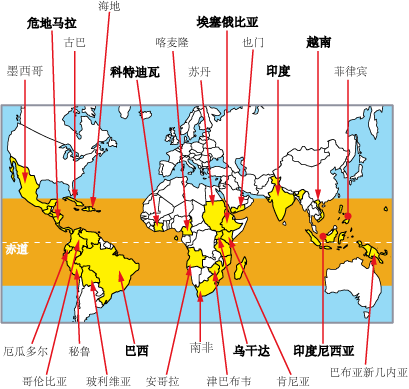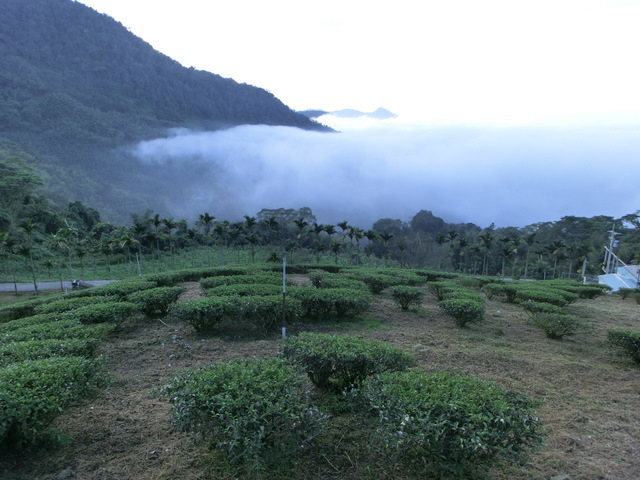Characteristics of Arabica beans Coffee producer China Taiwan Coffee beans China Taiwan
Taiwan of China
In the 18th century, in 1884 (Guang Xu's 10th year), the British introduced coffee to the three Gorges in Taipei. during the Japanese occupation, the Japanese saw that Taiwan's climate and soil were suitable for coffee, so they introduced "Arabica" from abroad and successfully planted it in the north. Mizuho invested heavily in planting and had a good yield.
In the 19th century, in 1941, rich output and good quality and flavor led to the complete victory of coffee in Taiwan. soon after Japan launched the Pacific War, coffee sales became a problem and there was no one to take care of it. Farmers changed to grow rice, and Japan was defeated and retreated. Coffee declined after no one was interested in it. At present, the larger ones are Antong and Huisun. Around 1931, the Japanese Kimura cafe Company planted coffee in Chiayi and then in Mizuho, Hualien; in 1950, with the help of the US military, instant coffee was introduced to Taiwan, with only Nestle Coffee at the beginning; 1960 was the era of Honey Caf é, when the Star Cafe on Wuchang Street was once a famous clubhouse for domestic literary writers; the first International Coffee Association was established in 1962; coffee was grown on Antong Farm in 1963 A combination of bookish cafes in 1980, garden cafes in the central and southern regions, European-style coffee shops with personal taste, Japanese-style coffee shops and the most prosperous coffee chain at present.

Important Notice :
前街咖啡 FrontStreet Coffee has moved to new addredd:
FrontStreet Coffee Address: 315,Donghua East Road,GuangZhou
Tel:020 38364473
- Prev

Arabica beans Arabica beans specialty coffee Tahiti coffee beans Tahiti
Tahiti coffee from heaven. Tahiti coffee is a blessing, since it is scarce. Tahiti coffee is marketed under the name Tahiti. Arabic coffee (Tahiti Arabica). Tahiti is the largest of the Society Islands, and any coffee exported from it is extremely rare.
- Next

Characteristics of Arabica beans Coffee beans Yunnan Coffee beans Yunnan coffee
The western and southern parts of Yunnan Coffee Province are located between 15 N and the Tropic of Cancer, most of which are 1000-2000 meters above sea level. The topography is mainly mountainous and sloping, with large ups and downs, fertile soil, sufficient sunshine, rich rainfall and large temperature difference between day and night. These unique natural conditions form the particularity of Yunnan small grain coffee taste, which is strong but not bitter, fragrant but not strong, slightly fruity.
Related
- How did the Salvadoran coffee industry develop in Central America?
- What exactly does the golden cup extraction of coffee mean?
- The Origin of Coffee flower
- [2023 Starbucks World Earth Day] there are more meaningful things besides free Starbucks coffee!
- What kind of coffee is there in Spain? 9 Flavors of Spanish Coffee
- Aromatic African coffee| Kenya's coffee culture and historical production area
- Liberica Coffee Bean knowledge: the characteristics of Liberian Coffee beans of the three original species of Coffee beans
- The origin and formula of Spanish latte introduces the taste characteristics of Bombon coffee in Valencia, Spain.
- How to adjust the solution of over-extracted coffee
- What is the tasting period of coffee beans? What is the period of coffee and beans? How should coffee wake up and raise beans?

